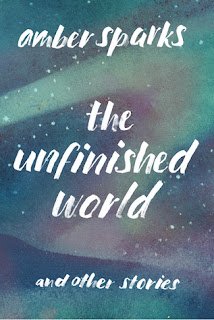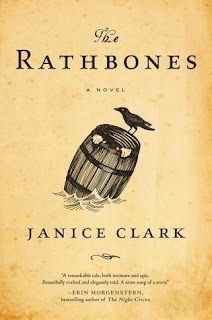WARNING: THERE MAY BE SPOILERS BELOW
This voyage is special. It will change everything…
One September evening in 1785, the merchant Jonah Hancock hears urgent knocking on his front door. One of his captains is waiting eagerly on the step. He has sold Jonah’s ship for what appears to be a mermaid.
As gossip spreads through the docks, coffee shops, parlours and brothels, everyone wants to see Mr Hancock’s marvel. Its arrival spins him out of his ordinary existence and through the doors of high society. At an opulent party, he makes the acquaintance of Angelica Neal, the most desirable woman he has ever laid eyes on… and a courtesan of great accomplishment. This chance meeting will steer both their lives onto a dangerous new course, a journey on which they will learn that priceless things come at the greatest cost…
What will be the cost of their ambitions? And will they be able to escape the destructive power mermaids are said to possess?
In this spell-binding story of curiosity and obsession, Imogen Hermes Gowar has created an unforgettable jewel of a novel, filled to the brim with intelligence, heart and wit.
One September evening in 1785, the merchant Jonah Hancock hears urgent knocking on his front door. One of his captains is waiting eagerly on the step. He has sold Jonah’s ship for what appears to be a mermaid.
As gossip spreads through the docks, coffee shops, parlours and brothels, everyone wants to see Mr Hancock’s marvel. Its arrival spins him out of his ordinary existence and through the doors of high society. At an opulent party, he makes the acquaintance of Angelica Neal, the most desirable woman he has ever laid eyes on… and a courtesan of great accomplishment. This chance meeting will steer both their lives onto a dangerous new course, a journey on which they will learn that priceless things come at the greatest cost…
What will be the cost of their ambitions? And will they be able to escape the destructive power mermaids are said to possess?
In this spell-binding story of curiosity and obsession, Imogen Hermes Gowar has created an unforgettable jewel of a novel, filled to the brim with intelligence, heart and wit.
I put off reading this behemoth of a novel because of how long it was, and the fact that the reviews weren't as good as I expected them to be. Finishing it, I can say, yeah, the reviews are right.
Ignoring the Georgian time frame (the main appealing factor) and the shipping company, this is a regency romance novel without the moors. I do not like regency romance novels. Not to mention, the two main characters had so little driving each other that getting through the book got impossibly hard at some points, where I was just flicking through pages wishing it was over. It wasn't that I didn't like them, it was that I found very little compelling about them and didn't really find their story arcs all that fascinating. And it wasn't just them, it was all the main characters. Jonah's niece was your typical historical fiction heroine, one with little interest in romance and lots of interest in reading and running a business, which is a boring played out trope, and everyone felt very wooden like they knew and understood that they were nothing more than characters in a book.
I also didn't really get much of a feel for late 18th century Great Britain. The characters were curiously free of the biases and opinions that would have been period-appropriate, and the dresses and descriptions made me thing more of both the 1810s and the 1600s, confusingly. It felt like a sanitized view of the late 1700s, and at times I wondered if the book was written for the sole purpose of being made into a BBC miniseries. Honestly though, if it was a BBC costume drama I probably would have liked it a lot more, and I'm not one for television serials.
This is a short review for a too long, forgettable novel. This is my least favorite new release of the year, and while I didn't outright hate it, there's not much about it to really like unless you like romance novels.
4 out of 10




















